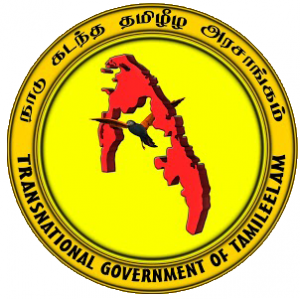EU Urged Not to Approve GSP plus to Sri Lanka until it Conforms Fully to UN Resolution: TGTE
“Transnational Government of Tamil Eelam (TGTE) also urged EU to support a strong position on Sri Lanka at the March 2017 UN Human Rights Council Session”
PERTH, AUSTRALIA, October 24, 2016 /EINPresswire.com/ —
In a letter to the Vice President of European Union (EU) Ms. Federica Mogherini, the Minister of International Affairs for Transnational Government of Tamil Eelam (TGTE) Mr. Manicka Vasagar has urged European Union not to approve GSP plus, until after the Sri Lankan Government fully conforms to the UN Human Rights Council Resolution, which Sri Lanka itself co-sponsored.
The UN Human Rights Council passed series of Resolutions on accountability after around 70 thousands Tamils were killed in six months in 2009 and Tamil women sexually assaulted and raped by the Sri Lankan Security forces (Source: UN Internal Review Report on Sri Lanka).
The last Resolution,”on Promoting Reconciliation, Accountability and Human Rights in Sri Lanka” was co-sponsored by thirty seven members of the UN Human Rights Council and Sri Lanka. This Resolution stipulated specific steps to be taken to bring the perpetrators to face justice in a judicial mechanism consists of international judges.
So far Sri Lanka have not taken any meaningful steps to fulfill requirements stipulated by the UN Human Rights Council Resolution. On the contrary, Sri Lankan leaders are making statements against main aspects of the UN Resolution, like involvement of international judges in the judicial process.
In this context, Mr. Manicka Vasagar has written this letter, urging EU not to approve GSP plus to Sri Lanka until after it fully complies with the UN Resolution.
Mr. Manicka Vasagar also urged European Union to support a strong position on Sri Lanka at the March 2017 UN Human Rights Council Session.
For information contact: manicka.vasagar@tgte.org
ABOUT TRANSNATIONAL GOVERNMENT OF TAMIL EELAM (TGTE):
Transnational Government of Tamil Eelam (TGTE) is a democratically elected Government of a million strong Tamils (from the island of Sri Lanka) living in several countries around the world. TGTE was formed after the mass killing of Tamils by the Sri Lankan Government in 2009.
TGTE twice held internationally supervised elections among Tamils around the world to elect 132 Members of Parliament. It has a bicameral legislature and a Cabinet. It held one of its Parliamentary sittings in the British Parliament.
TGTE is leading a campaign to realize Tamils’ political aspirations through peaceful, democratic and diplomatic means. The Constitution of the TGTE mandates that it should realize its political objective only through peaceful means.
The Prime Minister of TGTE is Mr. Visuvanathan Rudrakumaran, a New York based lawyer.
Contact: pmo@tgte.org; Web: www.tgte-us.org
TGTE Welcomes Ban Ki Moon’s visit to Sri Lanka. Cautious Him about False promises and hoodwinking by the Government
BACKGROUND:
Tamils in the island of Sri Lanka faced repeated mass killings in 1958, 1965, 1977, 1981 and 1983 and the mass killings in 2009 prompted UN Secretary General Ban Ki-moon to appoint a Panel of Experts to report on the scale of the killings.
According to UN internal review report on Sri Lanka, over 70,000 Tamils were killed in five months in early 2009 and Tamil women were raped by the Sri Lankan Security forces. There are over 90,000 Tamil war widows and thousands of Tamils disappeared due the conflict.
According to this UN report, the killings and other abuses that took place amount to war crimes and crimes against humanity. Independent experts believe that there are elements of these abuses that constitute an act of genocide.
Members of the Sri Lankan security forces are almost exclusively from the Sinhalese community and the victims are all from the Tamil community.
A Buddhist Monk shot and killed a Sri Lankan Prime Minister 1959 for having talks with Tamil political leaders.
Tamils overwhelmingly voted in a Parliamentary election in 1977 to establish an independent and sovereign country called Tamil Eelam. This Parliamentary election was conducted by the Sri Lankan Government.


